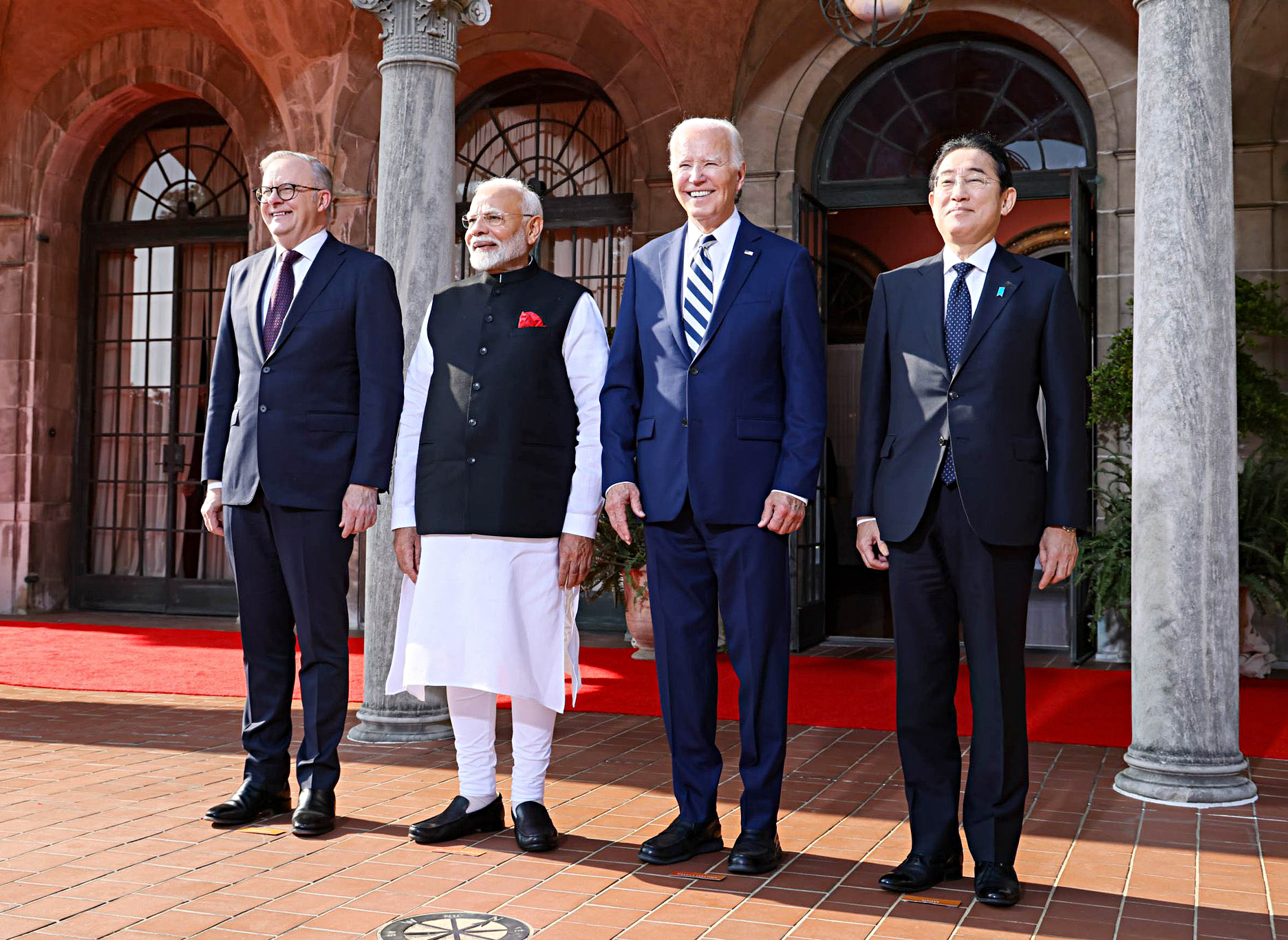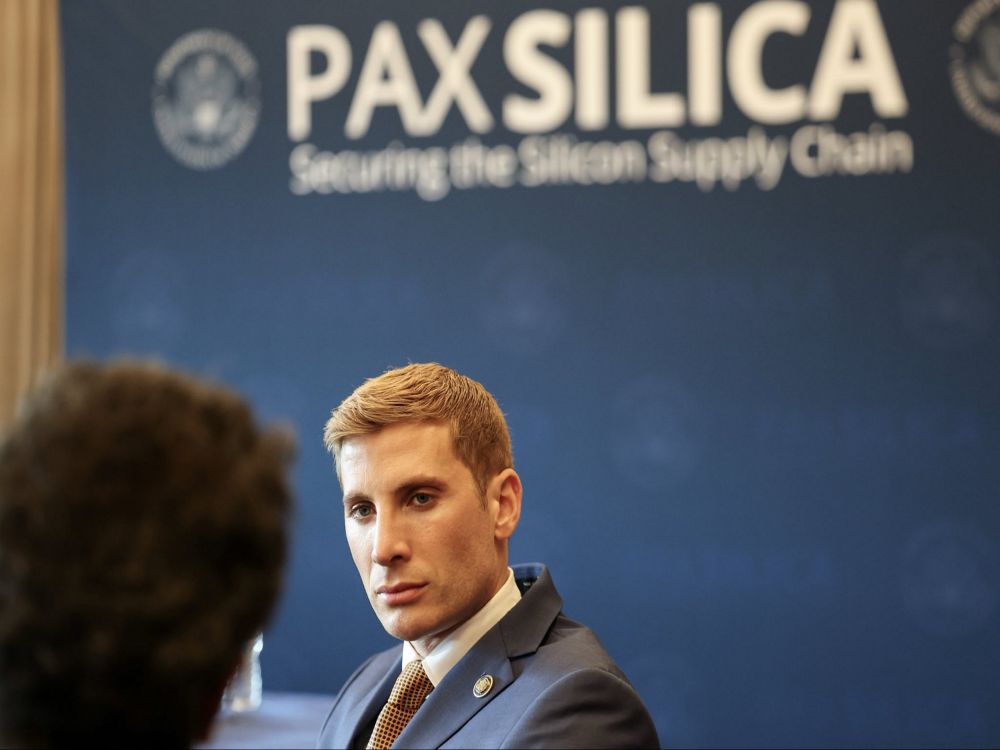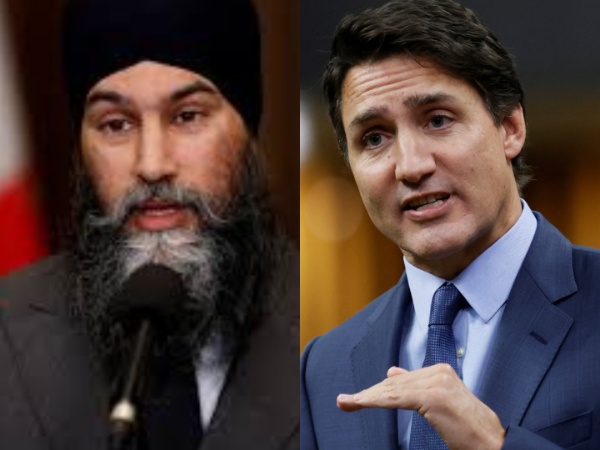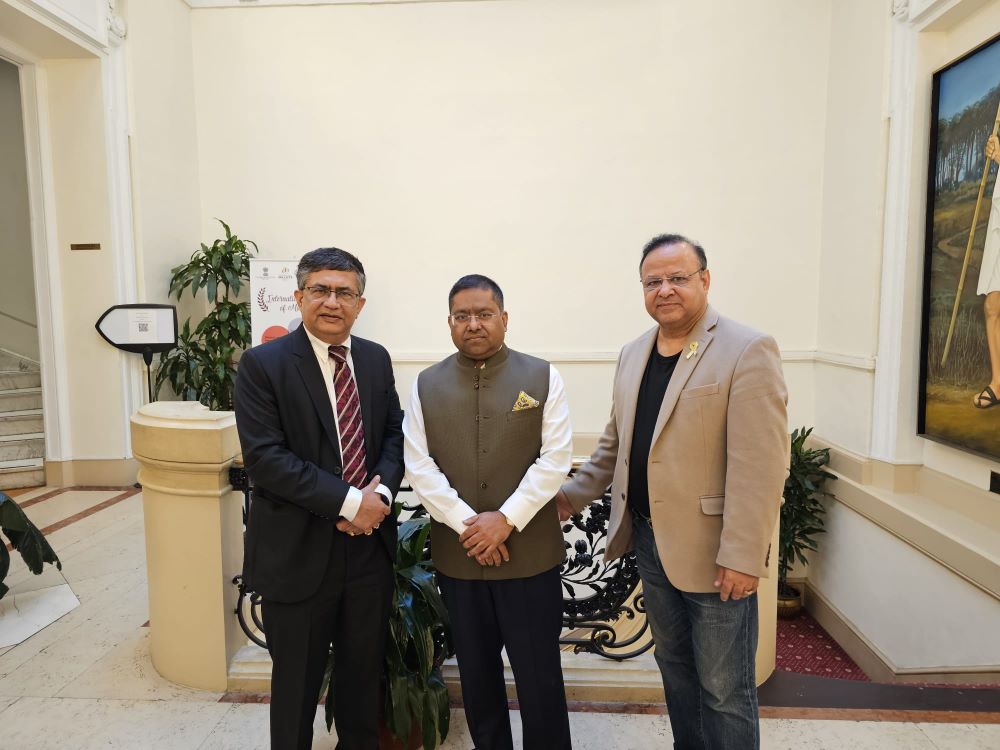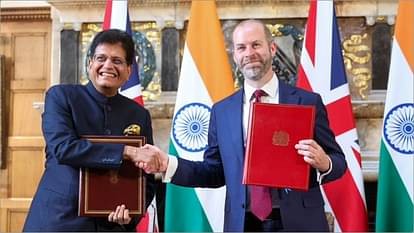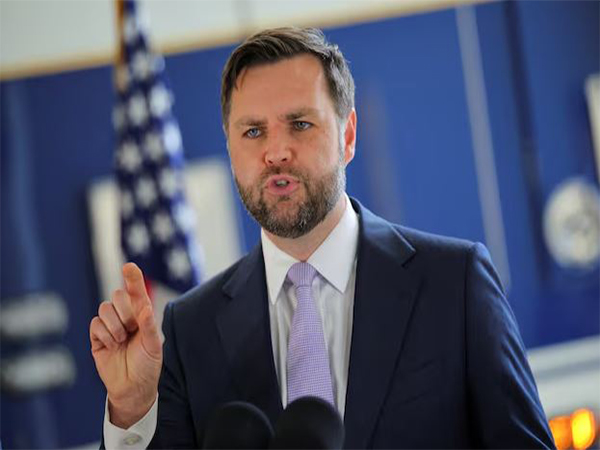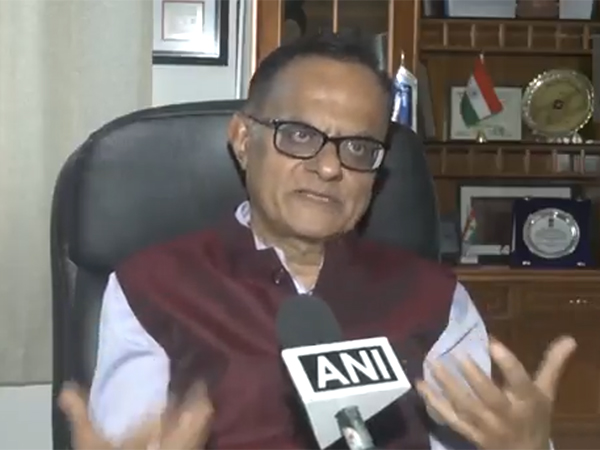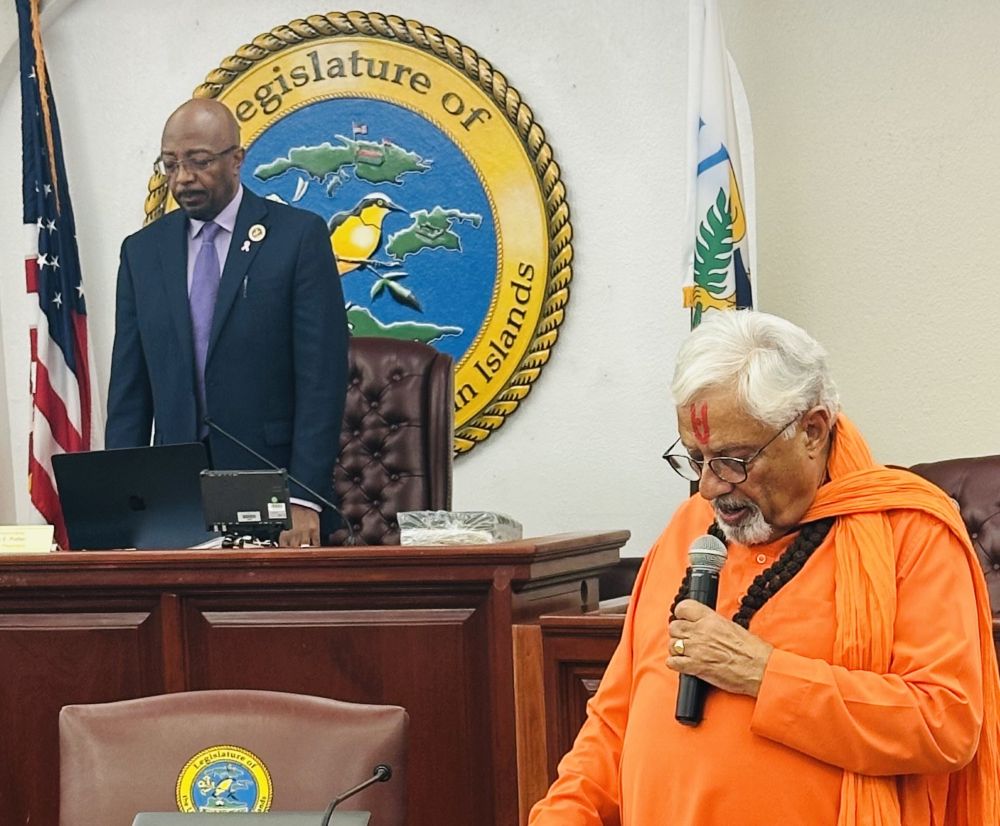Indian Prime Minister and US President Biden reaffirm commitment to comprehensive strategic partnership; US and India will continue to deepen their military partnership
Our Bureau
Washington, DC
After the significant state visit of 2023, Prime Minister Modi’s visit to the United States for the Quad Leaders’ Summit and the United Nations General Assembly (UNGA) on September 21 has been pivotal in strengthening the strategy partnership.
President Biden and Prime Minister Modi reaffirmed that the US-India Comprehensive Global and Strategic Partnership is the defining partnership of the 21st century.
“During the Quad Summit and bilateral discussion, President Biden and Prime Minister Modi have underscored the shared interests that both democracies share. However, it’s important to elevate and expand those interests to shared priorities to address the urgent challenges of the 21st century,” the US-India Strategic Partnership Forum (USISPF) said in a statement.
“In a short timeframe, we have witnessed tremendous progress as the US-India Major Defence Partnership continues to be a vital pillar of security in the Indo-Pacific region,” the statement added.
The defence partnership has been fructified with the success of the initiative on Critical and Emerging Technology (iCET) and subsequently with the India-US Defence Acceleration Ecosystem (INDUS-X).
These have been crucial in deepening and expanding strategic cooperation across key technology sectors, including space, semiconductors, artificial intelligence, quantum, biotechnology, and advanced telecommunications, as evinced by the Prime Minister’s roundtable with tech CEOs.
According to the statement, “The plans to establish a new semiconductor fabrication will rejig India’s manufacturing potential, boost the high-tech sector, strengthen national security and supply chains, and attract American investors.”
Ahead of Climate Week, the United States and India’s partnership is vital in helping India realise its Net Zero goals by 2070, propelling the vision for a clean economy and mitigating the disasters of climate change.
The success of Chandrayaan-3 in 2023 has paved the way for a more strategic and deeper space collaboration between NASA and ISRO to conduct further scientific research onboard the International Space Station in 2025.
The priorities are towards development ecosystems, as both countries have facilitated joint research opportunities between their leading scientific institutions, national laboratories, and private sector researchers, all of which will tie in to advance the “Innovation Handshake.”
PM Modi’s recent visits to Ukraine and Poland and India’s leadership at the G20 Summit show that Washington acknowledges New Delhi’s role as both a voice for the Global South and one that can build bridges and de-escalate tensions, a much-needed approach at the moment.
In line with the Quad vision, both the United States and India will continue to deepen their military partnership and interoperability to maintain a free and open Indo-Pacific.
Washington and New Delhi’s joint efforts, from procurement of drone technology to jet engine manufacturing to Javelin and Stryker systems in India, are vital in increased operational coordination, information-sharing, and defence industrial innovation.
Increased bilateral and tri-service exercises in the Tiger Triumph and Yudh Abhyas exercises are vital for both sides in strengthening defence ties and maintaining global security and peace.
Both leaders have welcomed New Delhi’s signature and ratification of the agreements under Pillar III, and Pillar IV, of the overarching Agreement on the Indo-Pacific Economic Framework for Prosperity (IPEF).
The IPEF aims to boost cooperation on trade, supply chains, and clean energy. The 14 IPE partners represent 40 per cent of global GDP and 28 per cent of global goods and services trade.
India will be opening two new consulates in the U.S., one in Boston and another in Los Angeles, adding to the recent addition in Seattle.
“This signifies the strength of the diaspora in the United States and the need to increase diplomatic engagement in different corridors of the country. What was evinced during Prime Minister Modi’s recent visit was the euphoria of the diaspora, the unrelenting optimism from both governments in the partnership, and the depth and bonds of friendship in the people-to-people engagement,” the USIPF said.
“As we bid adieu to President Biden, USISPF would like to thank the 46th President and commend the commander-in-chief for strengthening bilateral ties. In what is certain to be his last meeting with Prime Minister Modi as a sitting President, it’s clear, that whoever occupies the White House in January 2025, will continue to build on the strategic partnership and prioritise the Indo-Pacific as central to Washington’s geostrategic vision,” the USIPF further said.
















